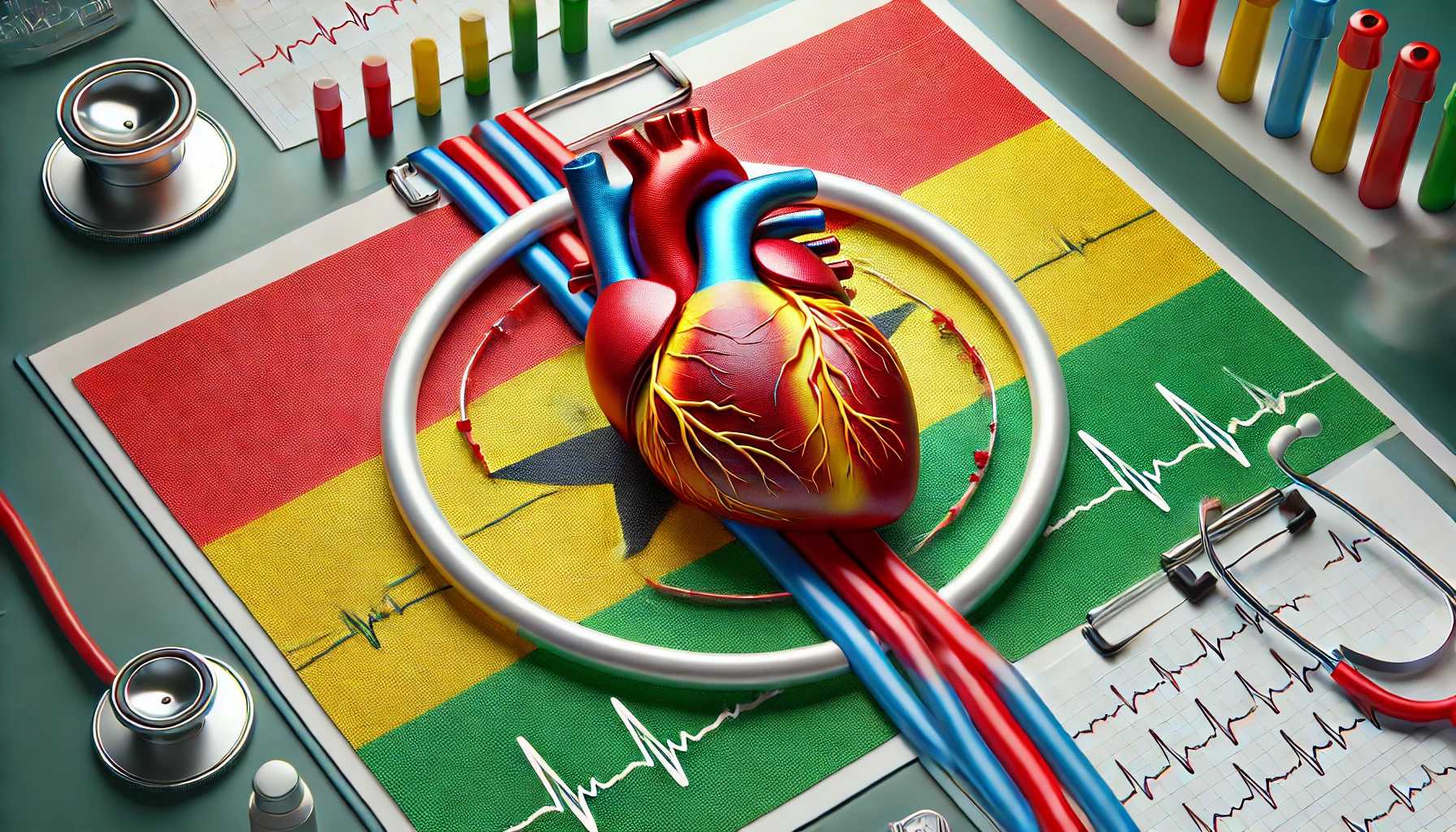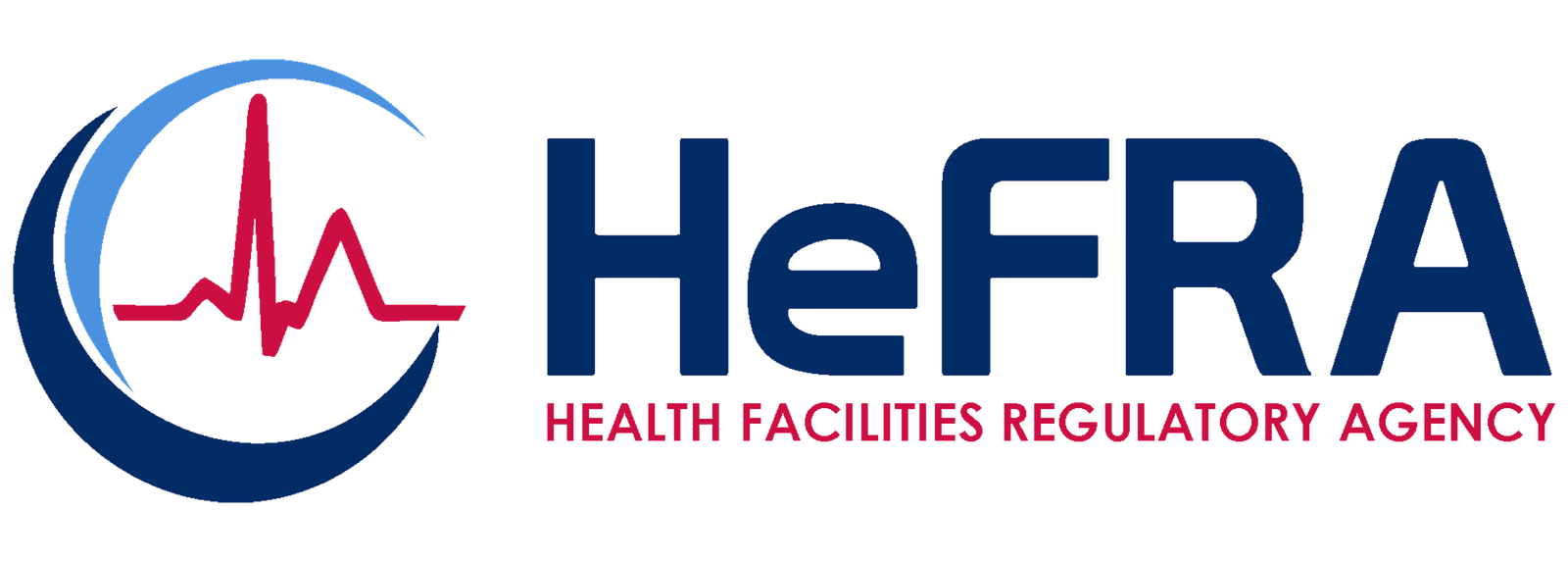
Heart Attacks in Ghana Clarified: Causes, Symptoms, Treatments, and Myths 🫀⚠️
Heart attacks are on the rise worldwide—and Ghana is no exception. With busy lifestyles, changing diets, and limited awareness, many Ghanaians do not recognize the early warning signs of a heart attack or may turn to unproven remedies. This article aims to give you clear, simple information about heart attacks: what they are, how they happen, their signs and symptoms, available treatments, complications, and the myths that often surround them in Ghana. It is our hope that this knowledge will empower you and your loved ones to take better care of your hearts.
1. What is a Heart Attack?
A heart attack—also called a myocardial infarction—happens when there is a blockage in the blood supply to a section of the heart muscle. This blockage is typically caused by buildup of fatty deposits (plaque) inside the arteries that supply blood to the heart. When that artery is blocked, part of the heart cannot get enough oxygen and nutrients, causing damage to the heart muscle.
Are Heart Attack and Cardiac Arrest the Same?
No. A heart attack is a blocked blood supply to the heart. A cardiac arrest is when the heart suddenly stops beating altogether. A heart attack can lead to cardiac arrest if not treated quickly, but they are not the same thing.
Are Heart Attack and Stroke the Same?
No. A stroke affects blood supply to the brain; a heart attack affects blood supply to the heart.
Images are only illustrative; may not pass an academic critique
2. Common Causes and Risk Factors
- High Blood Pressure (Hypertension): Over time, uncontrolled high blood pressure damages arteries, making them more prone to blockage.
- High Cholesterol: Eating too much oily or fatty food (e.g., excess palm oil and fried foods) increases cholesterol buildup in arteries.
- Diabetes: High blood sugar levels damage blood vessels, making heart attacks more likely.
- Smoking and Excessive Alcohol: Smoking and heavy alcohol use both damage the heart and blood vessels.
- Physical Inactivity and Poor Diet: Sedentary lifestyles and diets high in salt, sugar, and unhealthy fats are increasing in Ghana and contribute to heart disease.
- Family History (Genetics): Heart disease can run in families. If a close relative has had a heart attack, your own risk can be higher.
- Obesity: Carrying too much weight, especially around the belly, can raise your blood pressure and cholesterol.
- Stress: Chronic stress can raise blood pressure and worsen other risk factors.
Can Heart Attacks Happen Without Blockage?
Very rarely, other issues such as artery spasms can reduce blood flow. However, in most cases, plaque buildup and artery blockage are the main culprits.
Why Are Heart Attacks More Common These Days?
Lifestyle changes, urbanization, and increasing consumption of processed foods can all contribute. Also, conditions like hypertension and diabetes are rising in Ghana.
Images are only illustrative; may not pass an academic critique
3. Signs and Symptoms
A heart attack might come on suddenly or start slowly. It can even come and go for days, which is why some people mistake it for something else. Common signs include:
- Chest Pain or Discomfort: Often described as pressure, tightness, or heaviness in the center or left side of the chest. Some say it feels like “an elephant sitting on their chest.” This pain can be constant or may come and go.
- Pain Spreading Beyond the Chest: The discomfort may spread to the arms (commonly the left arm, but sometimes both), jaw, shoulder, neck, or back.
- Shortness of Breath: You may feel like you cannot catch your breath, even when resting.
- Nausea, Vomiting, or Diarrhea: Some people experience upset stomach, sweating, or even diarrhea.
- Lightheadedness or Dizziness
- Cold Sweat or Excessive Sweating
- Unusual Tiredness or Weakness
Are Heart Attack Symptoms Different for Men and Women?
Yes, sometimes. Men often have the “classic” chest pain. Women may have milder chest pain or may experience fatigue, jaw or shoulder pain, shortness of breath, and nausea, making it harder to identify.
Can Heart Attack Symptoms Last for Days?
Yes, symptoms can appear gradually and may feel like indigestion or muscle pain at first. If you notice any persistent or severe symptoms, seek medical care immediately.
Is a Heart Attack Always Painful?
Many are painful, but some (called “silent” heart attacks) have mild or no noticeable chest pain, especially in older adults or people with diabetes. However, there are usually other signs like fatigue or shortness of breath.
4. Myths and Misconceptions in Ghana
- “It’s a Curse or Witchcraft”: Heart attacks are medical emergencies caused by blocked arteries, not curses.
- “Only Old Men Get Heart Attacks”: Heart attacks can happen to both men and women of any adult age, especially if risk factors are present.
- “Traditional Herbal Mixtures Can Immediately Cure a Heart Attack”: While traditional medicines may help promote overall health, there is no proven herbal remedy that can instantly unblock arteries or save your life during a heart attack. Proper hospital treatment is urgent and necessary.
- “If the Chest Pain Goes Away, It Wasn’t a Heart Attack”: Sometimes heart attack pain comes and goes. Even if it stops briefly, you should not ignore it.
Images are only illustrative; may not pass an academic critique
5. Complications of Heart Attacks
- Heart Failure: The damaged heart muscle may weaken, leading to a reduced ability to pump blood.
- Abnormal Heart Rhythms (Arrhythmias): Heart attacks can cause dangerous irregular beats.
- Cardiac Arrest: When the heart suddenly stops beating.
- Organ Damage: If blood flow is poor, the kidneys and other organs can be harmed.
- Death: Heart attacks can be fatal if not treated urgently.
6. What to Do If You Suspect a Heart Attack
- Call for Help: In Ghana, dial the emergency numbers (e.g., 112 or 193) or go to the nearest hospital.
- Chew an Aspirin (If Available): Aspirin helps to thin the blood and can limit damage if taken soon after symptoms start. However, only do this if you are not allergic and if you have no other medical reasons to avoid aspirin.
- Rest and Remain Calm: Sit or lie down and try to remain as calm as possible while waiting for help.
- Do Not Drive Yourself: Ask someone to take you to the hospital if an ambulance is not available.
7. Treatment Options
In a Hospital Setting:
- Medications:
- Blood Thinners: (e.g., aspirin, heparin) to prevent further clotting.
- Clot-Busting Drugs (Thrombolytics): In certain hospitals, these are used to break down clots.
- Nitroglycerin: Helps widen blood vessels, easing blood flow to the heart.
- Beta-Blockers & ACE Inhibitors: Lower blood pressure, reduce heart strain, and help with long-term recovery.
- Pain Relievers: Ease discomfort.
- Angioplasty and Stenting: A tube is inserted into the blocked artery to open it up, and a small mesh tube (stent) is placed to keep the artery open.
- Bypass Surgery (CABG): Doctors create a new pathway around a blocked artery using a blood vessel from another part of your body.
Can Heart Attacks Be Cured?
With prompt treatment, many people survive and recover. However, the best “cure” is prevention and managing risk factors.
Can Heart Attacks Kill?
Yes. Heart attacks can be fatal if not treated quickly. But survival rates increase significantly with early diagnosis and proper medical treatment.
Images are only illustrative; may not pass an academic critique
8. Prevention and Healthy Lifestyle
- Maintain a Balanced Diet: Include more fruits, vegetables, whole grains, beans, and lean proteins like fish. Cut down on fried foods, sugary drinks, and salty, processed meals.
- Stay Physically Active: Regular exercise (e.g., brisk walking, dancing, or jogging) at least 3–5 times a week helps control weight, blood pressure, and cholesterol.
- Avoid or Quit Smoking: Smoking damages your blood vessels and worsens your heart’s health.
- Limit Alcohol Intake: Excessive drinking can raise blood pressure and contribute to other risk factors.
- Manage Stress: Practice relaxation techniques, share burdens with trusted friends or family, and find healthy outlets like hobbies or sports.
- Get Regular Check-Ups: Check your blood pressure, cholesterol, and blood sugar regularly, especially if you have a family history. Early detection is key.
- Adhere to Medications: If you have high blood pressure or diabetes, take your medications as prescribed by your doctor.
Can Heart Attacks Happen Even If I Do All This?
Yes, sometimes. But the chances are much lower when you keep healthy habits, know your family history, and address risk factors early.
9. Addressing Angina (Chest Pain That Might Not Be a Heart Attack)
Angina is chest pain that occurs when your heart muscle temporarily does not get enough blood. It often feels like pressure or squeezing in the chest, and it usually happens during activity or stress and goes away with rest. Angina is nota full-blown heart attack, but it is a warning sign. It can progress to a heart attack if left untreated.
- Are Angina and Heart Attack the Same?
- No. But angina can be an early warning that your heart’s blood supply is partly blocked.
- Can Angina Be Cured?
- It can often be managed and improved with medications, lifestyle changes, or procedures to improve blood flow.
- Do I Need to Worry If I Have Angina?
- Yes, you should see a medical professional. Angina should never be ignored.
Images are only illustrative; may not pass an academic critique
10. Conclusion
Heart attacks are a serious and growing concern in Ghana. They can happen suddenly or develop slowly over several days. Recognizing the symptoms and seeking immediate medical help can save your life. While myths and traditional remedies may exist, remember that heart attacks are best managed in a hospital with scientifically proven treatments. Whether you are young or old, male or female, living in the city or the village, do not ignore warning signs like chest pain, shortness of breath, or unexplained tiredness. Make healthy lifestyle choices—eat nutritious meals, stay active, avoid smoking, limit alcohol, and manage any health conditions such as high blood pressure or diabetes. Above all, if you suspect a heart attack, act fast and go to the hospital—it could be the difference between life and death.
Stay informed, stay heart-healthy, and share this information with friends, family, and neighbors. A heart attack is not a curse—it is a medical condition that requires prompt treatment and ongoing care. Empower yourself with knowledge, and you will be better prepared to protect your heart and well-being.
- High Blood Pressure: How Much is Too High? - What Every Ghanaian Should Know 🏃♂️💖🩺
- Sudden Death in Ghana: 50 Common Causes, Their Prevention, and Treatment 💀🦴⚰️
- 🇬🇭 Brain Attack! How to Spot, Treat & Prevent Stroke in Ghana 🚑🧠⚠️
- Kidney Health 101 for Ghanaians 🌱🍏🥕🥬
- Health Insurance Policies in Ghana for the Ordinary Ghanaian: A Complete Guide 🏥💊🛡️

We Love to Educate for Free
But please do not self-medicate as wrong doses of even correct medications can cause serious complications like kidney failure and even death. You can talk to a LICENSED health professional (including medical doctors, specialists, physician assistants, clinical psychologists, nutritionists/dieticians, medical herbalists, etc) by downloading the Deluxe Hospital app here:










